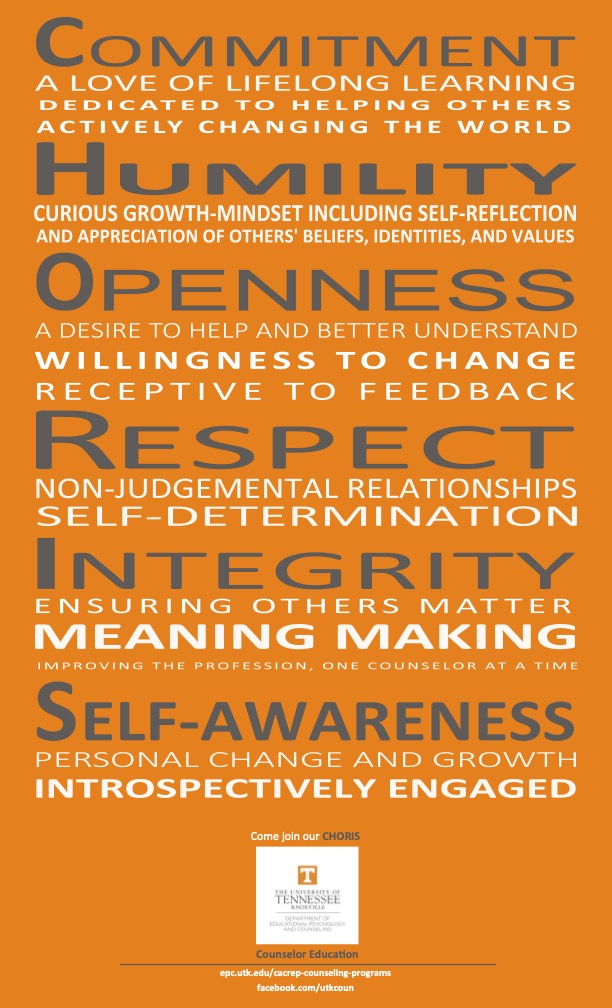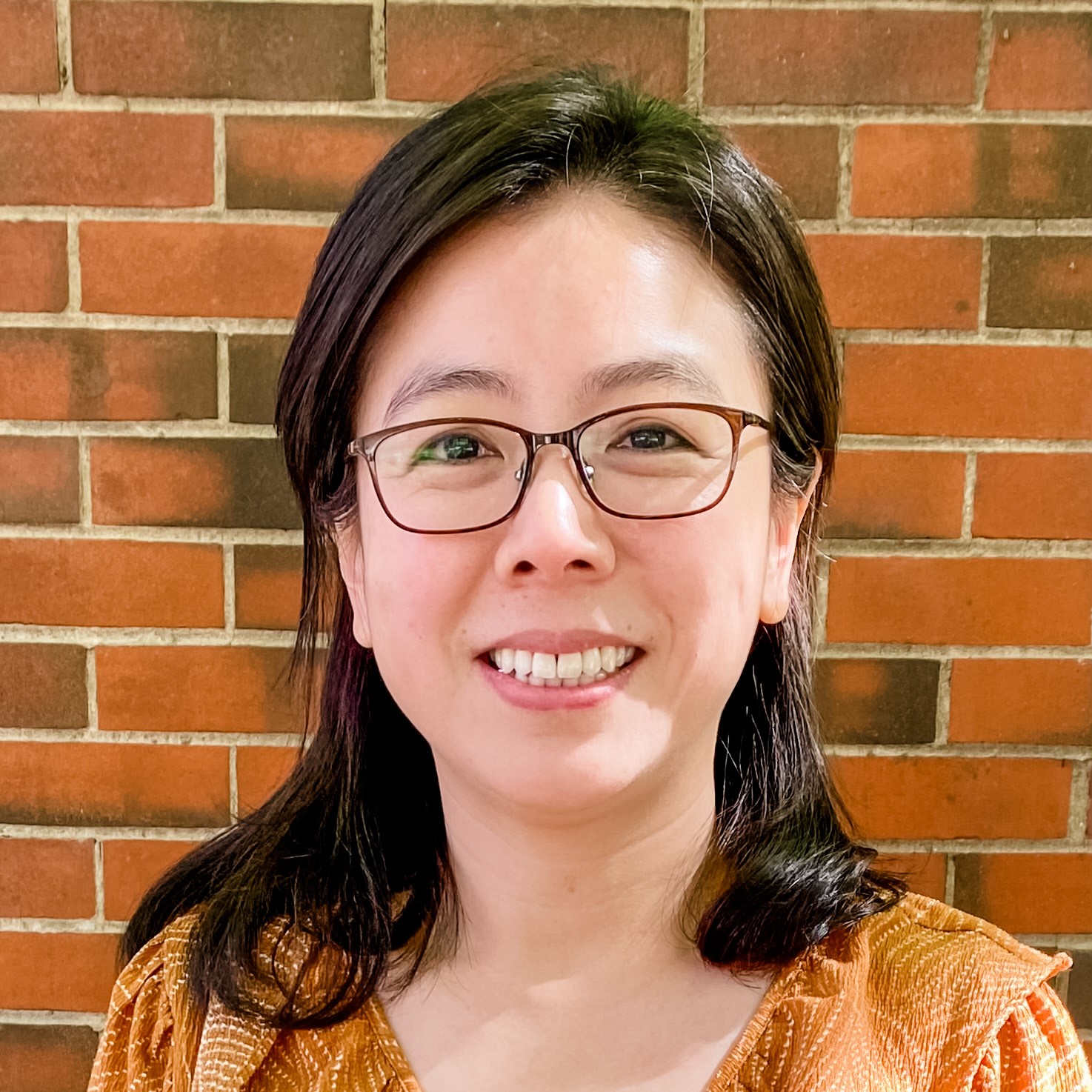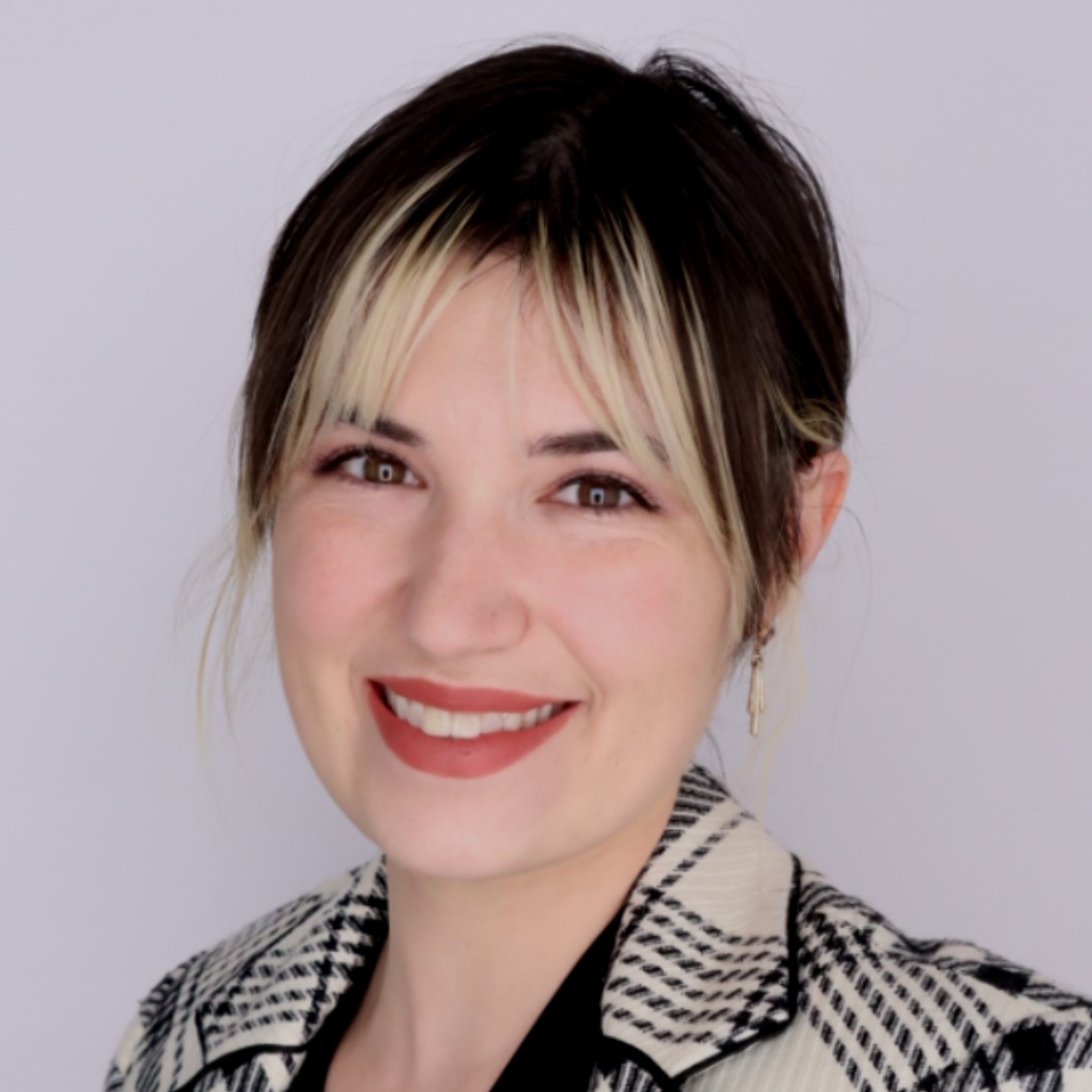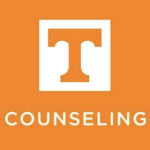Interested in advancing your counseling career into areas such as leadership, advocacy, research, and university teaching?
Join us for our next Online Information Session for the PhD Program in Counselor Education. [We are currently securing a schedule for 2024 sessions]
RSVP here:
Request More Info About Counselor Education
Our CACREP-accredited doctoral program in Counselor Education is designed for individuals who have completed a master’s degree in counseling and wish to deepen understanding of counseling while developing skills in supervision, teaching, research, and leadership and advocacy. Our graduates go on to careers as counselor education faculty members; supervisors in school, university, or agency settings; and private counseling and consulting practice. Our program is completely face-to-face in Knoxville. Most students enroll on full-time basis, and part-time options are available by advisement.
Please Note: The GRE is not required for applicants to the Counselor Education Doctoral Program.
Click here to view the Counselor Education PhD Brochure
About Counselor Education
Mission
We aim to make the world a better place for persons in need through preparing excellent counselor educators and supervisors. Our graduates excel in providing culturally sensitive, developmentally appropriate, ethical, and evidence-informed approaches to counseling, counselor education, and supervision. They enrich the counseling profession through research, leadership, and advocacy.
Objectives
- Graduates will explore and engage in culturally sensitive, developmentally appropriate, ethical, and evidence-informed counseling relationships that prepare them to train master’s level professionals and contribute to the development of counseling theory and practice.
- Graduates will provide culturally sensitive, ethical and developmentally appropriate supervisory relationships that promote skills of developing clinicians and provide gatekeeping for the profession.
- Graduates will demonstrate culturally sensitive, developmentally appropriate, and ethical teaching, assessment, and evaluation methods relevant to educating counselors.
- Graduates will comprehend and apply diverse methods for answering research questions relevant to the counseling profession.
- Graduates will be culturally sensitive and ethical advocates and leaders for self, clients, and the counseling profession through interventions, programming, and professional and community engagement.
- Graduates will demonstrate professional dispositions including Commitment, Humility, Openness, Respect, Integrity, and Self-Awareness.

An acronym C H O R I S to highlight core values counseling programs and their students hold.
Core CACREP-Accredited Program Faculty
Casey A. Barrio Minton*
Department Head
Professor
cbarrio@utk.edu
865-974-8382
Jeff L. Cochran*
Professor
jcochr11@utk.edu
865-974-4178
Jamian Coleman, PhD*
Assistant Professor
jcolem73@utk.edu
865-974-0734
Joel F. Diambra*
Associate Professor
jdiambra@utk.edu
865-974-8774
Melinda M. Gibbons*
Professor
mgibbon2@utk.edu
865-974-4477
Hyunhee Kim, PhD*
Assistant Professor
hkim103@utk.edu
865-974-5487
Jordan Westcott, PhD*
Assistant Professor
jwestco1@utk.edu
865-974-3845
*Designated as core faculty members for this program.[/half]
Information for Potential Applicants
Complete application packets must be received no later than November 1.
Interviews are held in mid-December, and selection is made by mid-January for students entering the program the following fall term.
We will be hosting two online information sessions for potential applicants. If you are interested in participating in an online information session, please click here PhD Zoom Registration to make a reservation. Once you sign up, you will receive information about the date and time of the sessions.
Includes EPC GA Application form, departmental fellowships/scholarships, and links to other funding sources around UT Knoxville.
CACREP Accreditation Information
Updated 02/08/2024







